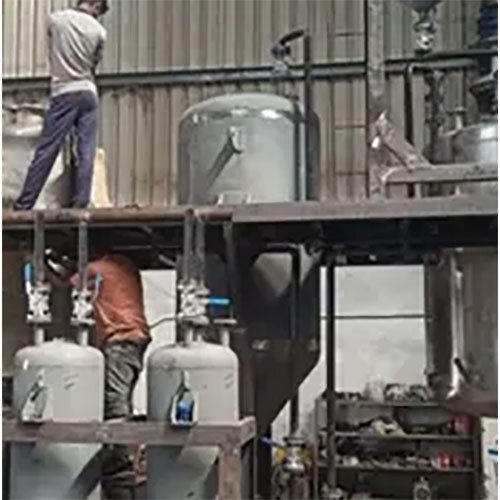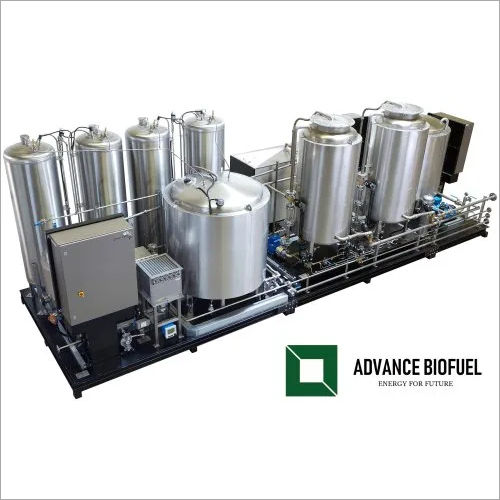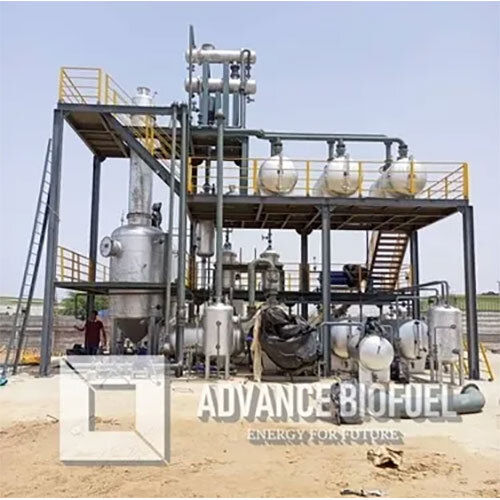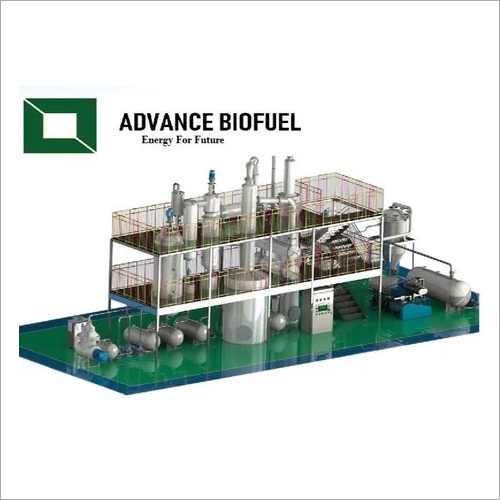GST Number - 24AAICB8818J1ZE
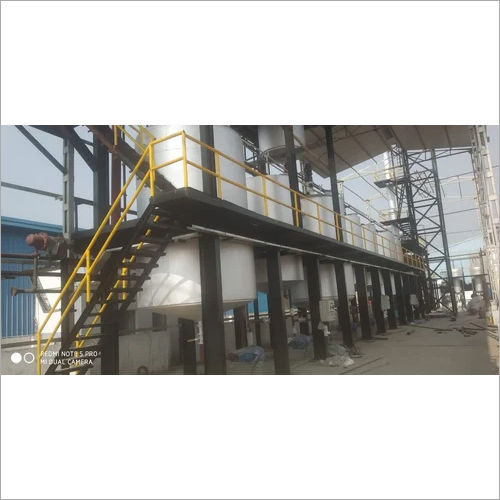
Biodiesel Manufacturing Plant
195000000 INR/Plant
Product Details:
- Power 60 Watt (w)
- Condition New
- Product Type Biodiesel Manufacturing Plant
- General Use FUEL PRODUCTION
- Material Stainless Steel
- Capacity 1 - 1000 Ton/day
- Weight (kg) 500000 Short Ton
- Click to view more
X
Biodiesel Manufacturing Plant Price And Quantity
- 1 Plant
- 195000000 INR/Plant
Biodiesel Manufacturing Plant Product Specifications
- Yes
- FUEL PRODUCTION
- High Speed Digital Time Low Energy Consumption Automatic Alarming
- Electric
- 100 X 400 Meter (m)
- 500000 Short Ton
- AC Motor
- Yes
- Agitator
- Yes
- 60 Watt (w)
- White
- 100 Watt (w)
- New
- Stainless Steel
- Single Shaft
- 12 MONTHS
- 1 - 1000 Ton/day
- Biodiesel Manufacturing Plant
Biodiesel Manufacturing Plant Trade Information
- MUNDRA, GUJARAT
- Cash in Advance (CID) Cash Advance (CA)
- 100 Plant Per Month
- 90 Days
- Contact us for information regarding our sample policy
- INDUSTRIAL STANDARD PACKING
- Australia Central America South America Western Europe Middle East Africa Asia Eastern Europe North America
- ISO 9000:2014
Product Description
- Biodiesel Production Plants are facilities that convert vegetable oils, animal fats, and even used cooking oils into a clean-burning, renewable fuel source. Biodiesel is a biodegradable and sustainable alternative to traditional fossil fuels, which can help reduce greenhouse gas emissions and improve air quality.
- The production process of biodiesel involves a chemical reaction called transesterification, which converts the fats and oils into a fuel that can be used in diesel engines. This process is relatively simple and can be done using basic equipment and technology.
- At a biodiesel production plant, you will find a variety of equipment, including reaction vessels, separation tanks, and storage tanks. These plants also have equipment for handling, processing, and storing raw materials, as well as waste management systems.
- In addition to producing biodiesel, these plants must also adhere to strict environmental regulations to minimize their impact on the environment. This includes controlling emissions, managing waste, and implementing sustainable practices such as recycling and conservation of resources.
- By choosing biodiesel as your source of fuel, you are not only reducing your carbon footprint but also supporting the growth of the renewable energy industry. With the increasing demand for sustainable energy solutions, biodiesel production plants are becoming a vital component in the transition to a greener future.
- If you're interested in investing in or learning more about biodiesel production plants, please contact out team for more information. We strive to provide the most up-to-date information on biodiesel production, as well as the latest developments in the industry.
Advantages:
- Renewable energy source: Biodiesel is a renewable energy source that can be produced from various plant materials, such as vegetable oils, animal fats, and even used cooking oils, which are readily available and can be sourced locally.
- Reduce dependence on fossil fuels: By establishing a biodiesel production plant, we can decrease our dependence on fossil fuels and reduce greenhouse gas emissions. This can also help to reduce air pollution and contribute to a cleaner environment.
- Cost-effective: The cost of producing biodiesel is relatively low when compared to other forms of renewable energy, making it an attractive investment opportunity.
- Versatility: Biodiesel can be used as a fuel source for diesel engines without modification, and it can also be blended with traditional diesel to create a more eco-friendly fuel.
- Local economic growth: Establishing a biodiesel production plant can create jobs and stimulate economic growth in the local area.
- Government support: Many governments offer incentives and subsidies for the production of renewable energy, including biodiesel, making it an attractive investment opportunity.
- Meeting the increasing demand: With the increasing demand for sustainable energy solutions, biodiesel production plants are becoming a vital component in the transition to a greener future.
- Compliance with environmental regulations: Biodiesel production plants must adhere to strict environmental regulations to minimize their impact on the environment. This helps to ensure that the production of biodiesel is sustainable and eco-friendly.
- Brand reputation: Investing in a biodiesel production plant can help to enhance a company's reputation as a responsible and environmentally conscious business.
FAQs of Biodiesel Manufacturing Plant:
Q: What is a Biodiesel Manufacturing Plant?
A: A Biodiesel Manufacturing Plant is a facility that produces biodiesel fuel from renewable sources such as vegetable oils and animal fats. It uses a process called transesterification to convert the oils and fats into biodiesel. The plant also includes equipment for mixing, heating, filtering, and cooling the biodiesel.Q: What are the specifications of a Biodiesel Manufacturing Plant?
A: The specifications of a Biodiesel Manufacturing Plant include a computerized system, a power of 60 watts, automatic operations, stainless steel material, an AC motor, a new condition, electric drive type, high speed, digital time, low energy consumption, automatic alarming, fuel production, dimension of 100 x 400 meters, a 12-month warranty, a voltage of 100 watts, white color, agitator mixer type, a weight of 500000 short tons, a capacity of 1 - 1000 tons/day, a PLC control, and a single shaft.Q: What are the features of a Biodiesel Manufacturing Plant?
A: The features of a Biodiesel Manufacturing Plant include a computerized system, automatic operations, high speed, digital time, low energy consumption, automatic alarming, fuel production, and a PLC control.Tell us about your requirement

Price:
Quantity
Select Unit
- 50
- 100
- 200
- 250
- 500
- 1000+
Additional detail
Mobile number
Email


